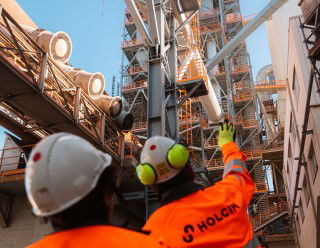FLSmidth has announced plans to sell its cement business. The Chinese turnkey providers have a growing market share and it is clear that other western European turnkey suppliers are trying to add value to their businesses to stay in the game.
FLSmidth's decision to look for a buyer for its cement division is a real shake-up for the cement sector's turnkey market. Despite the company's assessment that global economic development and the green transition offer attractive long-term growth opportunities, the Board of Directors want to explore the available divestment options for the company's cement business. FLSmidth has decided that, "the cement business could benefit from an alternative ownership."
"Unlocking the full potential of its cement business requires substantial investment and dedicated management attention," says the company.
While FLSmidth championed the 'One source' view for cement equipment providers, the company is now expected to rely more on its mining business and non-core activities for shareholder value growth. So, ICR asks how are other leading western European turnkey suppliers looking to hold out in a market where lucrative greenfield plant orders have slowed to a trickle.
Innovation in low carbon manufacturing is the future
Like FLSmidth, KHD Humboldt Wedag and thyssenkrupp Polysius have been aligning their business strategies squarely with the decarbonisation agenda. Emphasis has clearly shifted away from the once dominant full plant solutions to the more piecemeal but increasingly essential technology solutions related to alternative fuels, clinker reduction and carbon capture.
At KHD Humboldt Wedag innovations include the Pyrorotor®, a rotary combustion chamber which offers versatility to the alternative fuel equipment market with substitution rates of more than 85 per cent when firing low-quality fuels. Meanwhile the company, which is credited with inventing the first modern preheater kiln, is keeping an eye on the next generation of carbon-capture equipped cement plants. KHD has developed a complete oxyfuel concept, including oxyfuel-adapted kiln burner and specially configured clinker cooler.
thyssenkrupp Polysius has been promoting its grey2green concept to support the green transition. Its new combustion chamber technology allows fossil fuels to be completely replaced by green alternatives, thereby reducing emissions and operating costs. The company recently announced a project with Fujairah Cement in the UAE to reduce its CO2 emissions with its prepol® SC combustion chamber, which can replace fossil fuels by 100 per cent as the primary energy source at the calciner.
The company has also committed to developing a new generation of carbon capture technologies, including a pure oxyfuel technology, which will be installed at NEXE Group's cement plant in Croatia and Taiwan Cement Company's Hoping plant in Taiwan.
thyssenkrupp Polysius is also a supporter of activated clay cements, announcing in December 2023 that in cooperation with Schwenk Zement, it will trial the production of meca-clay hydraulic binders – without thermal energy but with only decarbonised elecrical energy – at the Allmendingen cement plant in Germany. The product will be based on Celitement, Schwenk's novel cement using the Polysius booster mill with commissioning forecast for 2025.
Meanwhile, French turnkey supplier Fives is pioneering several innovative technologies in support of decarbonisation. Solutions within the cement plant include calciner systems designed to replace fossil fuels such as the FCB Zero-NOx Preca hotspot calciner with staged combustion. The company is also exploring flash calcination plants for the production of calcined clay and continues to offer its revolutionary Horomill® technology for efficient grinding.
Outside the cement plant, Fives is pioneering concrete recycling, having developed the FCB Rhodax® crusher for concrete recycling to transform waste into aggregates, sand and cement paste. This paste can either be reintroduced into the kiln line to produce low CO2 clinker, or be used as a cement additive after a recarbonation process, capturing CO2 from the kiln fumes.
Further solutions to come
There are huge opportunities for turnkey providers to turn their capabilities and resources to their competitive advantage, developing solutions for the future that will allow the global cement industry to transform itself into a net zero emitter of carbon. It appears that the returns will not come quickly enough for FLSmidth's current management, but we may see a buyer that wants to lead the charge for the decarbonisation of the cement sector and carry on the work with the company's engineers to bring further green solutions to the cement sector.
